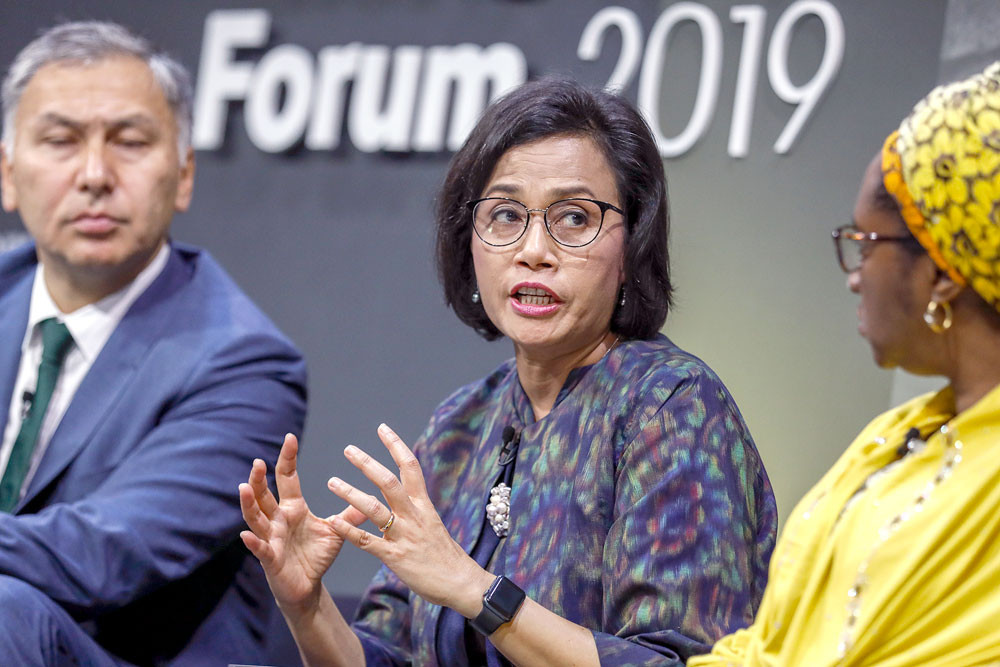Popular Reads
Top Results
Can't find what you're looking for?
View all search resultsPopular Reads
Top Results
Can't find what you're looking for?
View all search resultsSri Mulyani pledges to create favorable policies, tax incentives to boost capital market
Change text size
Gift Premium Articles
to Anyone
 Finance Minister Sri Mulyani Indrawati (center) speaks alongside Yerlan Syzdykov (left), the global head of emerging markets at Amundi Asset Management, and Zainab Ahmed, Nigeria’s former finance minister, during the 2019 Emerging + Frontier Forum at Bloomberg’s European headquarters in London. (Bloomberg/MacGregor)
Finance Minister Sri Mulyani Indrawati (center) speaks alongside Yerlan Syzdykov (left), the global head of emerging markets at Amundi Asset Management, and Zainab Ahmed, Nigeria’s former finance minister, during the 2019 Emerging + Frontier Forum at Bloomberg’s European headquarters in London. (Bloomberg/MacGregor)
F
inance Minister Sri Mulyani Indrawati has pledged to improve policies and create more tax incentives in an effort to boost the creation of new instruments in the capital market.
Speaking at the Capital Market Summit and Expo in Jakarta, Sri Mulyani expressed hope about the Indonesia Stock Exchange (IDX) and the Financial Services Authority (OJK) creating more investment instruments in a bid to help the government deal with the budget deficit to improve the quality of human resources.
In addition to working toward deepening the financial market, the former World Bank managing director also pledged to create favorable policies and incentives to boost fund raising in the capital market.
“I promise to also create policies and to design tax incentives for those instruments,” she said during a speech on Friday.
She further said that the instruments would be needed to help finance the state budget’s deficit in 2020 as the government projected next year’s spending to reach Rp 2.52 quadrillion (US$177.31 billion), while revenue was expected to reach Rp 2.22 quadrillion.
Most of the budget will be allocated to improve the country’s human resources, with Rp 132.2 trillion allocated to provide health care, Rp 505.8 trillion for education and around Rp 300 trillion for social aid.
Other than helping to finance the state budget deficit, Sri Mulyani said she expected the new instruments to also increase the public's participation in the capital market, eventually making it more resilient in the face of global economic uncertainties.









